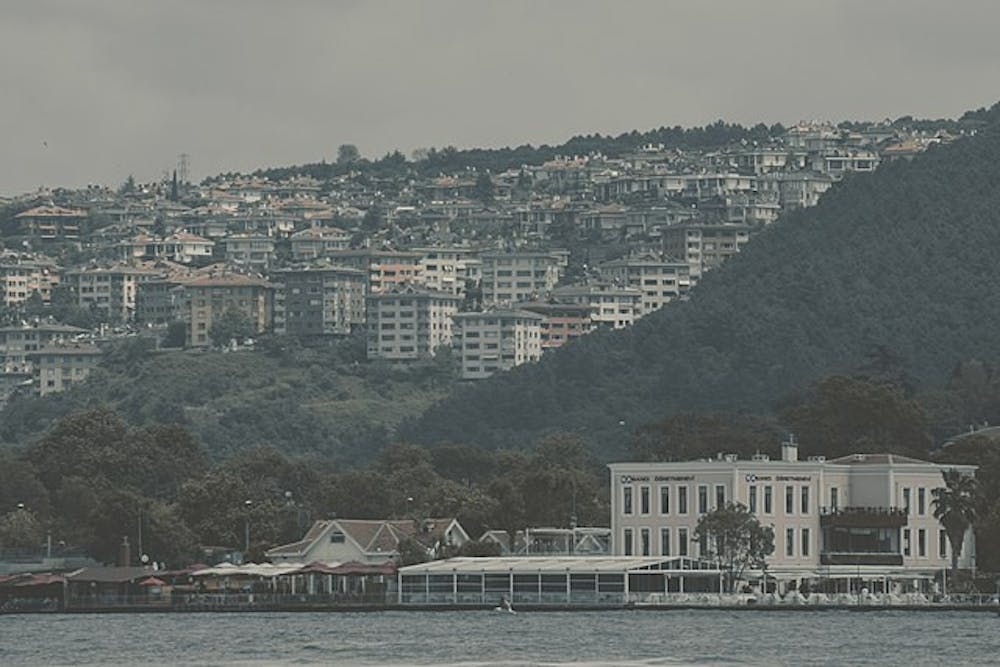On Monday, Feb. 6, a 7.8 magnitude earthquake devastated the bordering region of Turkey and Syria. More than 7,000 people have been reported dead, with thousands more left injured. Thousands of buildings have collapsed, leaving countless residents trapped under rubble and debris.
Samy Amkieh ’21.5 MPH ’23, who has relatives living in Latakia, a Syrian port city close to the Turkish border, learned about the earthquake while at dinner with friends. “The hardest thing (to do after finding out about the earthquake) was trying to figure out what was going on.”
“The early reports were very unclear as to what was happening and it was really hard to reach anyone because the telecommunication lines were packed in both Syria and Turkey,” Amkieh said. “It was very scary.”
For community members on College Hill who have loved ones in areas affected by the earthquake, the realities of the catastrophe are still felt deeply far away from the disaster, said Zehra Duru Bilgin ’25, an international student from Turkey.
“As someone from Turkey, I know that culturally we feel responsible (to) do the most we can for everyone,” she said.
Alex Winder, visiting assistant professor in Middle East Studies, acknowledged that this is a time of “intense fear and stress” for many community members who are trying to get in touch with and offer support to affected individuals in Turkey and Syria.
“The human toll of something like this is horrible to even” consider, said Atticus Henry ’25, who has extended family from Syria. “It’s a really scary situation because not only do you have the (earthquake), but the aftershocks are also devastating and the winter storm has made things worse.”
Zeynep Aydin ’23, an international student from Turkey and vice president of the Brown Cultural Association of Turkey, said she was worried that aid to the countries will be delayed as respondents wait for the aftershocks to settle.
“As time passes,” she said, “the death toll rises and it becomes even (sadder) than before.”
With the news still fresh, one of Amkieh’s biggest concerns is the capacity of both countries to recover from the damage, particularly in light of Syria’s ongoing civil war. Northern Syria, which was directly hit by the earthquake, is currently split between government- and opposition-held territory, which Amkieh anticipates will cause delays in relief efforts.
“I hope that the world can come together to coordinate a humanitarian response to minimize the already catastrophic nature of the earthquake and help the region recover as fast as possible,” Henry said.
Winder explained that years of war have made populations in northern Syria vulnerable, worsening the already catastrophic effects of the earthquake. He added that “natural disasters” like this earthquake are inherently social and disproportionately affect those already situated in circumstances where they have limited access to medical facilities.
“Once the sense of emergency retreats, (it’s important) that we don’t forget to consider those longer-term processes” that place people in positions of increased vulnerability, he said.
Nadje Al-Ali, director of Middle East studies, is thinking of refugees in the border region between Turkey and north Syria, as well as people she’s met throughout her research in southeastern Turkey.
“I know that the area that was affected the worst was already in crisis due to the cold this winter and the poor infrastructure,” Al-Ali wrote in an email to The Herald.
Serdar Sungun ’23, an international student from Turkey and president of the Brown Cultural Association of Turkey, said that most of the Syrian civil war refugees currently living in Turkey were directly hit by the earthquake, so they will most likely be displaced again.
Given the widespread displacement of both Turkish and Syrian people that will come about as a result of the earthquake, Aydin emphasized the importance of getting “human power and economic resources to the area.”
Turkish people are “trying to get and collect as much help as they can” to combat the region’s destruction and the displacement of its people, Bilgin said. “People (are going) under the debris, looking for family members or friends, or whoever might be there.”
“Even from afar, I can feel the loss (in) my country and my people deep down,” she said. “No matter where they’re located, every Turkish citizen is going through a hard time.”
Feb. 7, 2:23 p.m.: Story updated to reflect the most recent death toll according to ABC News.

Sofia Barnett is a University News editor overseeing the faculty and higher education beat. She is a junior from Texas studying history and English nonfiction and enjoys freelancing in her free time.





